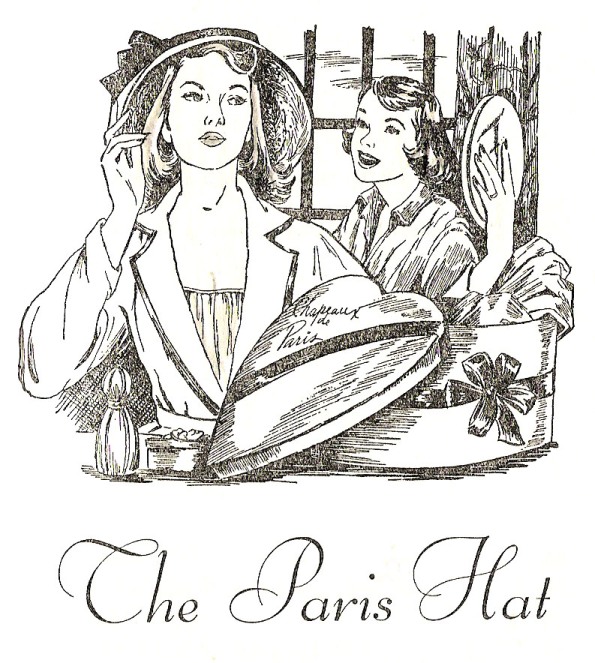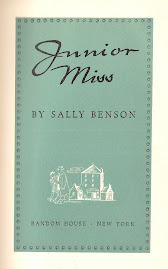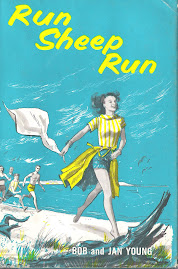 Title: Destination: Success!
Title: Destination: Success!Author: Jan Nickerson
Publisher: Funk and Wagnalls, 1959
Jacket artist: Ernie Bauth
Setting: A velvet reform school in Hillside, Pennsylvania
Provenance: Given to a J. Russell or T. Russell in August 1962
Fun: Kleptomania; a picnic ruined by a thunderstorm; eavesdropping solves everything; lost in a maze
Quote: "I can't be something that I'm not!" snapped Coralee.
"But that is just what you're trying to be!" returned Aunt Jane with a little smile. "You aren't really a sharp-tongued, disagreeable girl. I'm sure of that. You've made that a defense because you're afraid of being hurt. It's just like a false mask. Take it off, Coralee. Be yourself. Then I know you'll have lots of friends and you'll have a good time, too."
"Everyone deserves congratulations because we're all winners in one way or another. We've each succeeded at something." Coralee pondered this a moment, as though she were thinking of each girl in turn, and of what the summer had done for her. "You're right, Lissa!" she said, her brown eyes bright with happiness. "What a wonderful curtain line for our summer!" "But only a prologue to our future," declared Lissa.
As might be obvious from the above, Destination Success is not really a work of fiction, if you define fiction as being "similar to the real world but perhaps a little more mind-blowing." Destination Success is not interested in reproducing the conversations, speech or thoughts of actual people. Destination Success is a Message. It's about Discovering Who You Are and Learning to Be Your Best. There are some boys, but they are kept strictly in the background. A lot of teen novels of this era are, believe it or not, more about self-realization than meeting Mr. Right -- possibly because a serious relationship with Mr. Right might derail self-realization -- but in this book the boys are particularly stick-like. Consider that Lissa, our heroine, starts out with Tom, the boy she has dated all through high school. Tom has joined the Navy. At the end of the book Lissa is dating Eric. Do we blame her for writing Tom a Dear John letter? No, we don't -- not because of the many rationalizations that Lissa puts up (Tom's letters are distant, her best friend Kate wants him, etc.) but because we never really get to know either character.
Lissa, whose plans for the summer are ruined by Tom's enlistment, instead goes to a mansion in Pennsylvania which is being run as a "social-service project" for troubled girls by Aunt Jane. How exactly these girls are troubled is not specifically disclosed because it wouldn't be fair, says Aunt Jane, who has apparently forgotten she is a character in a novel and not a HIPPA official. None of them does anything especially "troubled" in the novel, although the shy one is, of course, a kleptomaniac. There's also Coralee, who provides a little excitement by scowling and stealing someone's boyfriend. Coralee, we eventually learn, is the unwanted daughter of a famous actress. Her parents are divorced.
The subplots in Destination Success never jibe and the dialogue thunks like a stroll across a covered bridge, but that's not the real problem here. The real problem is that Destination Success is awash in the self-empowerment talk that I'd always thought was a modern phenomenon. (As evidenced above, the "we're all winners" line is not a recent invention.) Lissa works as a waitress in a tearoom and isn't very good, but Aunt Jane won't let her quit, nor will her dragon-lady boss. Why? At the end of the story we learn that the dragon lady had a sister who looked like Lissa.
"She was clever, and most things came to her so easily that she didn't want to stick to anything that required work...She married rather unwisely and died while she was still a young woman."
"You must have felt very sad," said Lissa sympathetically.
"We did, but in time we got over it to some extent."
Yes, that's right, if you don't stick things out you'll die. And go unmourned by your smug relatives.













